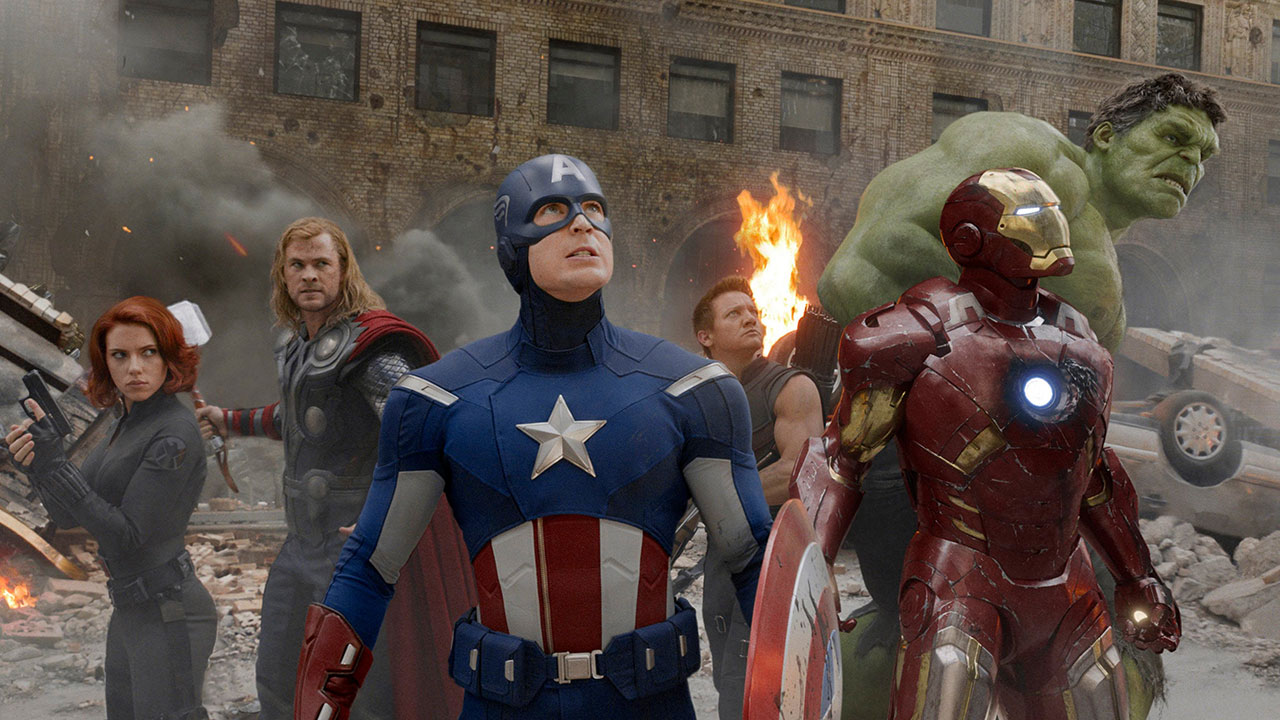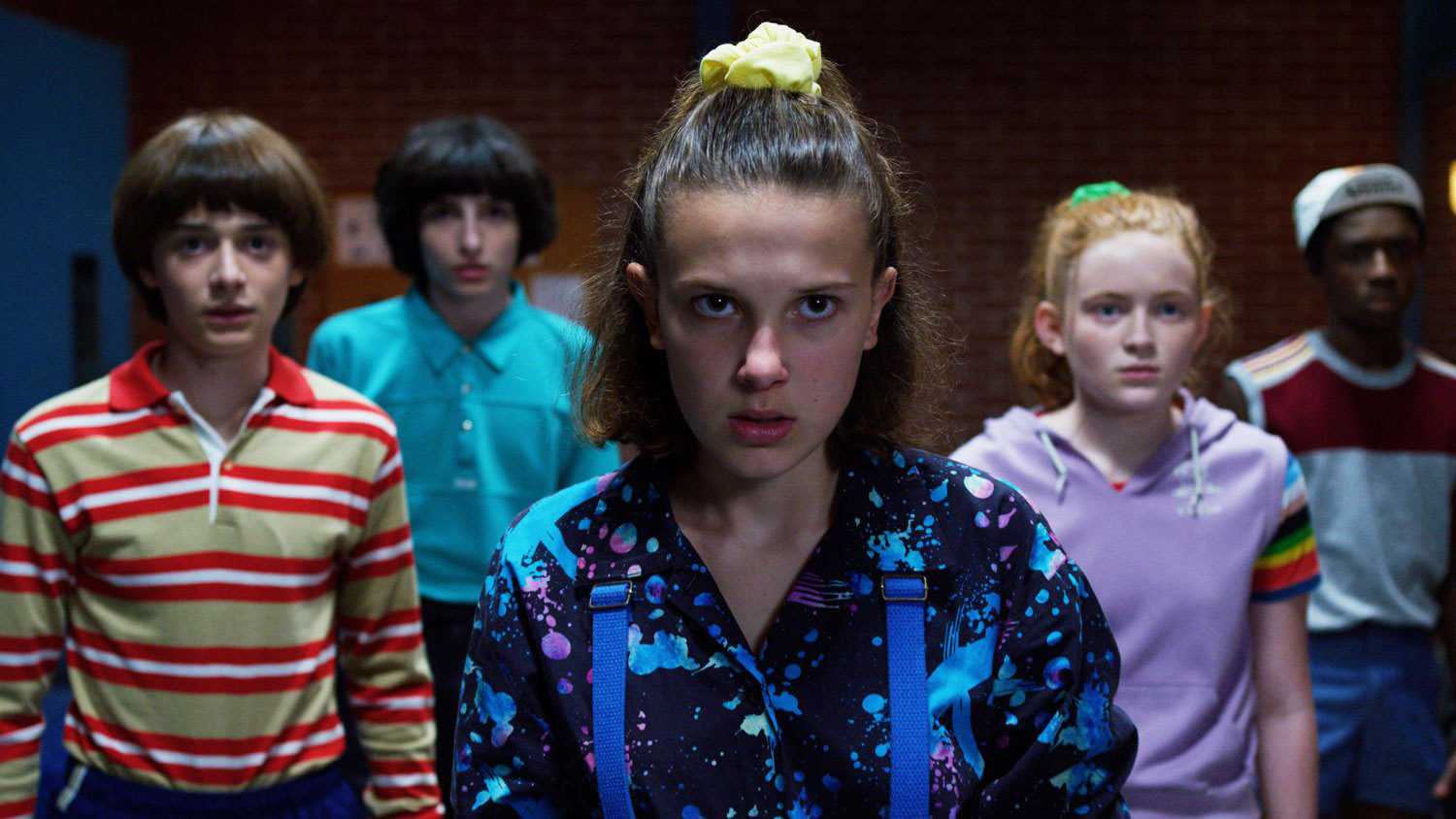The future of comic cons shouldn’t be digital
Opinion: Why a screen can never match the magic of the real thing

It won't be a revelation to anyone that global pandemics and mass gatherings are a bad mix – it’s been a fact of life since the world went into lockdown in early 2020, with comic cons and other fan events becaming a casualty of the Covid-19 world.
Bringing thousands of people together from all over the world, squeezing them into cramped indoor spaces, and inviting them to mingle is traditionally part of the con experience. But it's not a brilliant idea when there’s an infectious novel virus on the loose and, even in non-pandemic times, people coming home with undefined “con flu” goes with the territory.
Movie studios and streamers were quick to adapt to the new world order, coming up with alternative plans to ensure upcoming releases remained part of fan conversations. Over the last 18 months, we’ve seen an explosion of virtual events including DC FanDome, Star Trek Day, Netflix’s Tudum and the recent Disney Plus Day, as well as an online-only version of San Diego Comic-Con, Comic-Con@Home.
Much like their live-action counterparts, these virtual events have unveiled new trailers and footage, announced upcoming projects, and assembled stars and creators to talk about their projects.
When most of us were trapped in our homes, they were a great way of maintaining a sense of connection. But, now that the world is approaching a semblance of pre-coronavirus normality – with live events back on the calendar – it would be a shame if online-only events became the norm. Yes, the convenience of participating on our phones, tablets and laptops is a bonus – but we’d be losing a lot more than we gain.
The real thing

Viruses aside, live-action events aren’t without their drawbacks. Tens of thousands of people making a beeline for a single destination translates into a sizeable carbon footprint, while even the biggest venues have restrictions on their capacity. This means cons are inherently exclusive, the sort of events most people get to experience via a lucky few telling you how cool they were. Learning that the attendees of the San Diego Convention Center’s vast Hall H have been treated to exclusive, never-to-be-seen again clips from the next MCU movie is a peculiarly cruel form of torture for a fan.
But the ‘real thing’ is so much more rewarding than sitting in front of your computer, watching a montage of famous faces on YouTube, or monotonously tapping refresh until the next Twitter update appears.
Sign up for breaking news, reviews, opinion, top tech deals, and more.
In the same way that live music and comedy are infinitely more exhilarating than watching a gig on TV, the shared enthusiasm of a crowd can be – for want of a better word – infectious. Being at San Diego when Kevin Feige unveiled the original Avengers line-up on stage for the first time was a real “I was there!” moment. It’s a shared experience, where the audience is engaged with what’s happening in the room, rather than splitting their attention across multiple screens, or responding to an announcement on social media.
Then there’s everything else that happens at conventions away from the presentations on the main stages: con floors packed with exhibits and obscure merchandise you never knew existed, or the chance to socialize with like-minded fans or associates. Events like San Diego and New York Comic-Con are where significant amounts of business are done. Sure, lockdown has proved that much of this stuff is feasible over Zoom, but the curated, ‘everything under one roof’ ethos of a good convention is almost impossible to replicate online.
Taking back control

Perhaps the most significant development in the era of online-focused events, however, is the fact that each company can control its own bespoke conventions.
This is nothing new for Disney, who’ve been hosting their own D23 live events for years. But with notable, fan-friendly exceptions like the Star Trek franchise, few other media entities have a fanbase big and engaged enough to make similar gatherings worthwhile. On the face of it, then, going online lowers the bar for entry.
But this isn’t quite the great democratisation it appears. Instead, you risk a 'survival of the fittest environment' where viewers happily tune in for Disney, Netflix and Warner/DC presentations, but smaller players struggle to get a look in. One of the best things about a big, non-brand aligned convention is that you can wander between genres and studios – sometimes you might learn about a really exciting indie project while you’re waiting for the blockbuster attraction you came for. If you only get to see the franchises you already know, you’ll never discover anything new.
And as attendees make the shift from participants to viewers, the more the line between conventions and keynote presentations starts to blur. Disney’s Investor Day in December 2020 – which featured appearances from Kevin Feige and Kathleen Kennedy, the respective overlords of Marvel Studios and Lucasfilm – never hid the fact it was business oriented. It gained as many column inches as a convention – announcing numerous Marvel and Disney projects is going to have that effect – but definitely wasn’t a convention. A con should do more than simply supply you with information, and having fans in the room adds to the experience.
Asking the right questions

Of course, the practical benefits of going digital are obvious to a studio. Telling a load of stars and creatives to spend an hour in front of a web cam is rather easier than driving or flying them across the country – or even the world. They also get to deliver a carefully managed PR message.
But if participating talent only answers pre-orchestrated questions, you tend to end up with a more sanitised, boring presentation. Indeed, you can rest assured that attending journalists and fans will ask more interesting questions than what’s been fed to a moderator – even an “I can’t answer that…” non-answer to a spoilerific question can tell you something. And no, submitting your query in advance via an online forum is not the same as asking it in a live auditorium.
There are plenty that conventions can learn from the online experience, and inviting fans to view the action from around the world is one of the benefits of a connected digital world. But as soon as an event goes online only, and fails to replicate that instant human element, you can no longer call it a con. Online events have been a wonderful way to get us through lockdown but they should only be viewed as a stopgap. As long as live, in-person events are safe and practical, they should go back to being the norm – with online bits and bobs as a handy bonus.
Richard is a freelance journalist specialising in movies and TV, primarily of the sci-fi and fantasy variety. An early encounter with a certain galaxy far, far away started a lifelong love affair with outer space, and these days Richard's happiest geeking out about Star Wars, Star Trek, Marvel and other long-running pop culture franchises. In a previous life he was editor of legendary sci-fi and fantasy magazine SFX, where he got to interview many of the biggest names in the business – though he'll always have a soft spot for Jeff Goldblum who (somewhat bizarrely) thought Richard's name was Winter.
